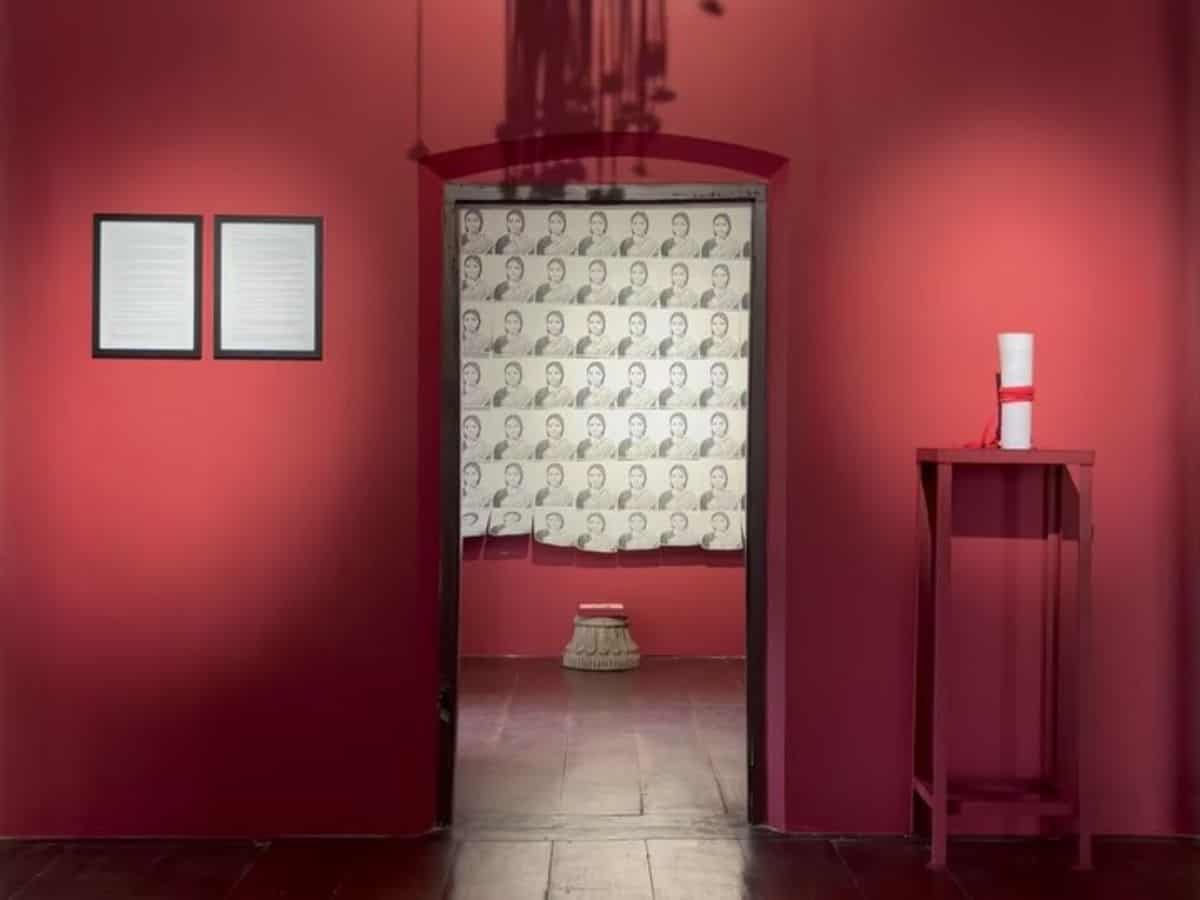
In an exhibition housed at the Neighbour Art Gallery in Kerala’s Thiruvananthapuram, artists question the monopoly held by men in public spaces and workplaces, where women are seldom acknowledged and feel comfortable.
The Neighbour Gallery, an art gallery is holding its inaugural exhibition titled “You Cannot Act Upon What You Cannot See” responds to the gender-based violence at the hands of male privilege primarily in the cinema.
A collection of works done by a set of women artists primarily focuses on the backdrops of the Hema Committee report, which investigated sexual violence and gender inequality in Malayalam cinema.
One of the artworks, named “Rosy’s Wall” narrates the story of PK Rosy, the first female actor in the history of Malayalam cinema. The trailblazing artist was later forced to leave the state after facing violent threats and societal backlash, historically from men at the time, for acting in cinema.
PK Rosy, a Dalit woman, acted in the lead role of a Nair woman in the first Malayalam film, Vigathakumaran, which was received by public outrage in Kerala, reportedly for showing humane feelings in the film. The filmmaker JC Daniel who played the lead role, and PK Rosy eventually had to flee the state for their safety, in fear from the outraged men.
The installation draws a comparison to the injustice and violence that continue to take place in the cinema industry in modern times.
The artist brings together PK Rosy and the Hema Committee report, with pages of the report kept along an Andy Warhol-esque collage of Rosy’s photograph.
Another striking artwork speaks about the monopoly held by men in public places, an artist places a picture of a set of women enjoying their time at a village tea shop in Kerala over a collage of smaller photographs of tea shops occupied by men, where women are often not welcomed of felt safe.

